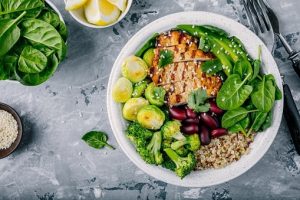 Just like any other part of your body, for proper hearing, your ears need nutrients. If you have nutritional deficiencies, you may find it more difficult to hear. This is why it’s so important to consume balanced, healthy meals to ensure you get in a wide variety of nutrients to ensure all of your bodily functions work well, including hearing.
Just like any other part of your body, for proper hearing, your ears need nutrients. If you have nutritional deficiencies, you may find it more difficult to hear. This is why it’s so important to consume balanced, healthy meals to ensure you get in a wide variety of nutrients to ensure all of your bodily functions work well, including hearing.
To optimize your hearing, you will want to include the following foods in your diet.
Foods to Eat to Improve Your Hearing
Advertisement
Potassium-rich foods: Potassium is an important nutrient because it helps regulate fluid in the body. There is fluid within the inner ear and without potassium, this fluid can become unbalanced, causing hearing difficulties. Foods like bananas, avocados, potatoes, spinach, melons, milk, oranges, apricots, tomatoes, lima beans, and yogurt are high in potassium.
Folic acid: Folic acid is necessary for new cell growth, and having low levels of folic acid increases your risk of hearing loss. Meat, asparagus, broccoli, and spinach are all rich in folic acid.
Zinc: Zinc supports a healthy immune system, cell growth, and wound healing. Zinc may help fight against germs which can trigger ear infections. Boost you zinc levels by consuming oysters, dark chocolate, oats, dark meat chicken, beef, cashews, almonds, peanuts, beans, quinoa, raisins, dried cranberries, and coconut flakes.
Magnesium: Consuming foods rich in magnesium may help protect your ears against noise-induced hearing loss. Magnesium also helps fight against free radical damage, which can contribute to hearing loss. The majority of fruits and vegetables contain magnesium, including bananas, potatoes, artichokes, spinach, tomatoes, and broccoli.
By consuming a variety of foods, you can ensure you are receiving the proper nutrients necessary to support healthy hearing for years to come.
Also read: Temporary hearing loss (temporary threshold shift): Causes and treatments
